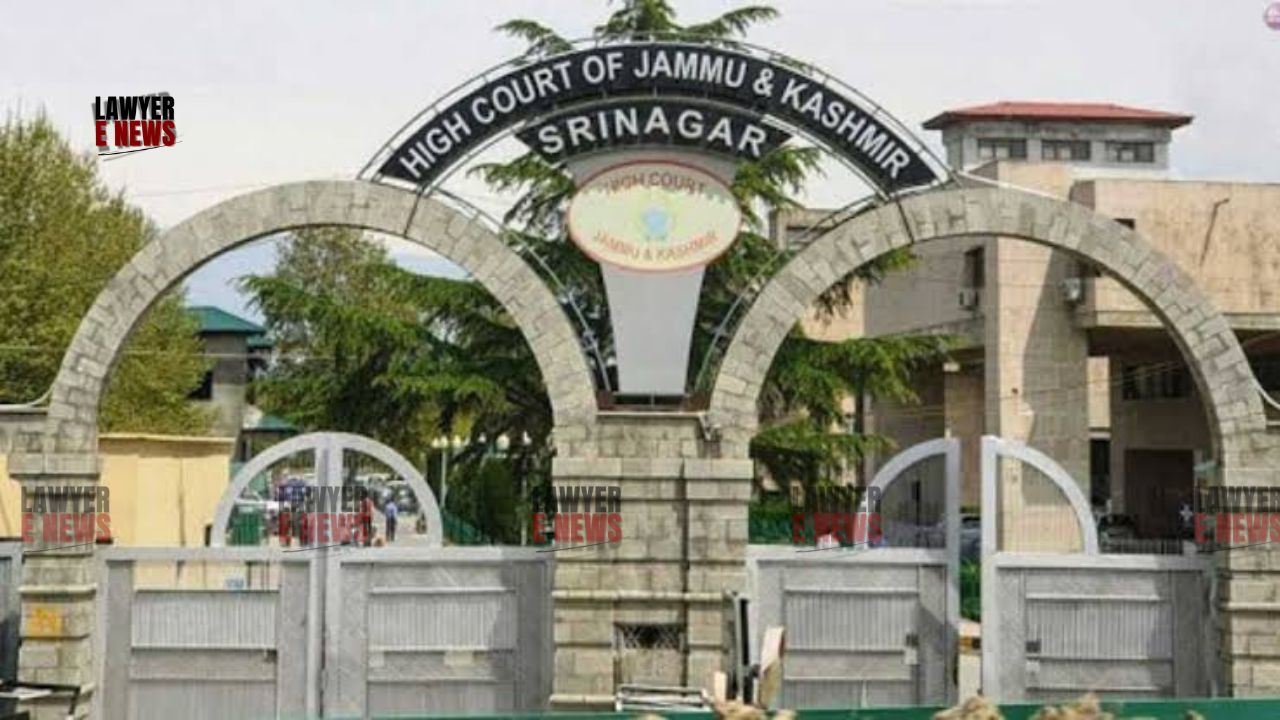-
by Admin
15 February 2026 5:35 AM



Court Emphasizes the Lack of Independent Evidence and Hostile Witnesses in Upholding the Acquittal of Raj Kumar. The High Court of Jammu & Kashmir and Ladakh has upheld the acquittal of Raj Kumar in a case involving charges of dowry harassment and abetment to suicide. The appeal, filed by the State, was dismissed by Justice Rajesh Sekhri, who emphasized the insufficiency of evidence and the reliability of witness testimonies in affirming the trial court’s decision.
On June 17, 2007, Hira Lal lodged a report alleging that his daughter, Neha, was subjected to dowry harassment by her husband, Raj Kumar, and his family. The complaint stated that despite fulfilling various dowry demands, the harassment continued, ultimately leading to Neha’s hospitalization where she was found with blood oozing from her nose. An FIR was registered under Sections 498-A and 306 of the Ranbir Penal Code (RPC), and Raj Kumar was charged following the investigation.
Justice Sekhri highlighted the importance of credible evidence, noting that the prosecution’s case primarily relied on the testimonies of the deceased’s family members, which were based on hearsay rather than direct knowledge. “The statements of the independent prosecution witnesses either turned hostile or did not support the prosecution case on material aspects,” the judgment noted.
The judgment delved into the legal principles surrounding abetment to suicide and dowry harassment. Justice Sekhri pointed out that for a conviction under Section 306 RPC, active participation or instigation by the accused must be proven. “There is no evidence or material on record wherefrom an inference of respondent having abetted the commission of suicide by the deceased may be drawn,” he stated.
Justice Sekhri remarked, “In order to constitute an offence of abetment of suicide, prosecution is obliged to prove active participation of the abettor in instigation or engagement in conspiracy or intentional aiding the doing of a thing.”
Hostile Witnesses: The judgment emphasized the role of hostile witnesses in the case. “It is pertinent to underline that except for parents, brother, and sister of the deceased, all the independent prosecution witnesses have either turned hostile or have not supported the prosecution case on material aspects,” observed the court.
The High Court’s decision to uphold the acquittal underscores the judiciary’s adherence to the principle of proving guilt beyond a reasonable doubt. The judgment reinforces the importance of credible and direct evidence in cases of dowry harassment and abetment to suicide. By dismissing the appeal, the court sends a clear message about the necessity of substantial evidence for convictions in such sensitive cases.
Date of Decision: May 28, 2024
State vs. Raj Kumar
